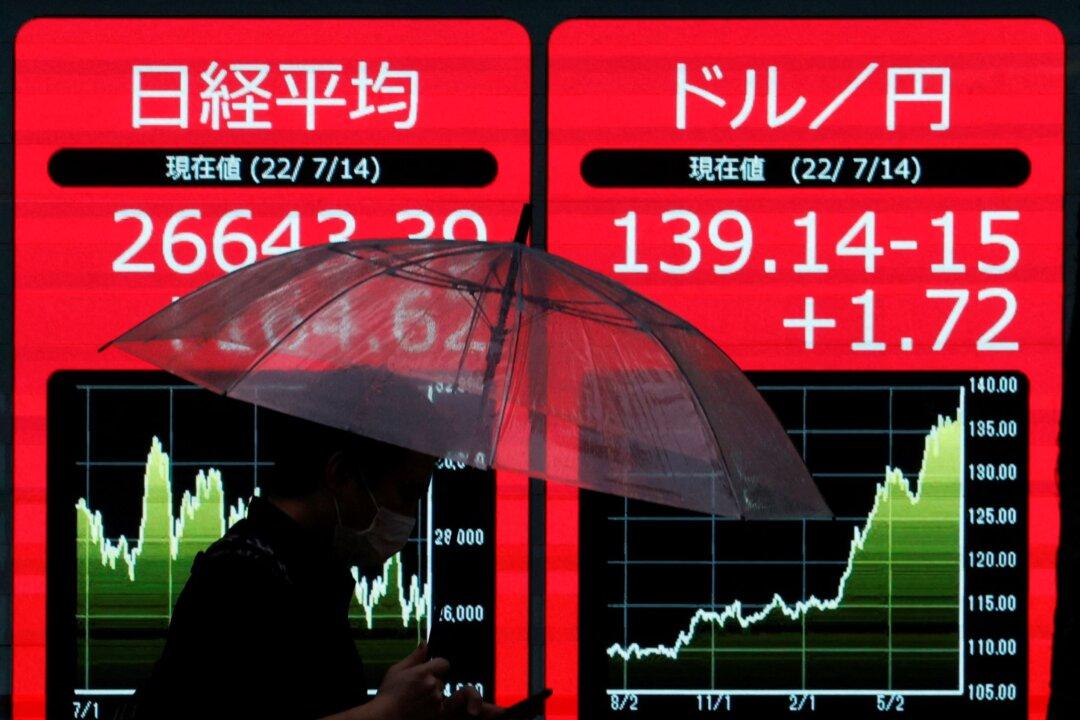LONDON—Stock markets and the euro held their ground on Thursday with investor nerves steadied by the resumption of Russian gas supplies to Europe as they waited for what is expected to be the European Central Bank’s first interest rate hike in 11 years.
The flow of Russian gas resumed to Germany after a 10-day outage, easing fears of a potential blow to the European economy if gas supplies have to be rationed.





